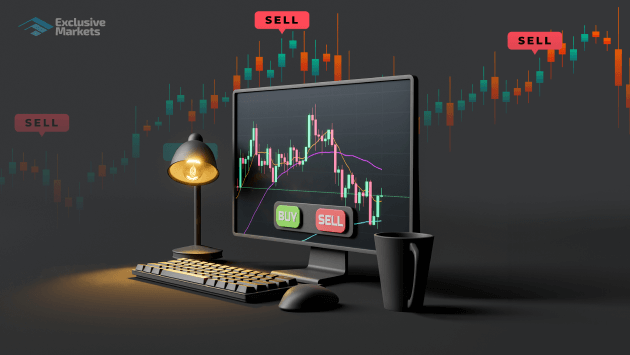
Beginner’s Guide to Forex Trading: Tips and Strategies
Forex trading, or foreign exchange trading, is a global marketplace for exchanging national currencies against one another. The Forex market is the largest and most liquid financial market in the world, with an average daily volume exceeding $6 trillion. For beginners looking to dive into this exciting world, understanding the basics is crucial. In this article, we will cover everything a novice needs to know to start trading in the Forex market. Moreover, you can find suitable beginner forex trading Trading Brokers in Vietnam to kickstart your trading journey.
What is Forex Trading?
At its core, Forex trading involves buying one currency while simultaneously selling another. Currencies are traded in pairs, such as EUR/USD (Euro/US Dollar) or USD/JPY (US Dollar/Japanese Yen). The first currency in the pair is known as the base currency, and the second is the quote currency. The exchange rate indicates how much of the quote currency is needed to purchase one unit of the base currency.
Understanding Currency Pairs
Understanding currency pairs is fundamental to Forex trading. Currency pairs are categorized into three main types:
- Major pairs: These pairs contain the most traded currencies and often include the US Dollar. Examples include EUR/USD, USD/JPY, and GBP/USD.
- Minor pairs: These pairs do not include the US Dollar but still contain major currencies, such as EUR/GBP or AUD/NZD.
- Exotic pairs: Exotic pairs involve one major currency and another from a developing economy, like USD/TRY (US Dollar/Turkish Lira).
Why Trade Forex?
Forex trading offers numerous advantages, making it an appealing option for beginners:
- High liquidity: The large volume of trades means that you can enter and exit trades quickly without significant price changes.
- 24-hour market: The Forex market operates around the clock, providing flexibility for traders in different time zones.
- Leverage: Forex allows the use of margin, which means you can control larger positions with a relatively small amount of invested capital.
- Variety of trading strategies: Forex trading offers various strategies, from scalping to swing trading, catering to different trading styles.
Choosing a Forex Broker
Selecting the right Forex broker is crucial for your trading success. Here are some factors to consider when choosing a broker:

- Regulation: Ensure the broker is regulated by a reputable authority to safeguard your investments.
- Trading platform: A good trading platform should be user-friendly and provide necessary tools for analysis and executing trades.
- Spreads and commissions: Compare the costs involved in trading, including spreads (the difference between buying and selling prices) and any additional commissions.
- Customer support: A responsive customer support system can help you quickly resolve any issues that arise.
Basic Forex Trading Strategies
As a beginner, adopting a simple trading strategy can help you learn the ropes without being overwhelmed. Some basic trading strategies include:
- Trend following: This strategy involves analyzing market trends and making trades in the direction of the trend.
- Range trading: In a ranging market, prices fluctuate between support and resistance levels. Traders can buy at support and sell at resistance.
- Breakout trading: This strategy focuses on entering trades when the price breaks above resistance or below support, signaling a potential new trend.
Risk Management in Forex Trading
Effective risk management is essential in Forex trading as it helps protect your capital. Here are some key concepts:
- Position sizing: Determine the size of your trades based on your account size and risk tolerance to avoid significant losses.
- Stop-loss orders: These orders allow you to exit a trade at a predetermined loss level, limiting your potential losses.
- Risk-reward ratio: Aim for a favorable risk-reward ratio, where potential profits outweigh potential losses.
Continuous Learning and Improvement
The Forex market is constantly evolving, and successful traders are those who commit to continuous learning and improvement. Consider the following resources:
- Online courses: Many platforms offer Forex trading courses that cover advanced strategies and market analysis techniques.
- Books and eBooks: Reading books authored by experienced traders can provide insights and diverse perspectives on trading.
- Trading forums: Engaging with other traders in online forums can help you learn from their experiences and share your own.
Conclusion
Entering the world of Forex trading can be both exciting and daunting for beginners. However, by understanding the fundamentals, choosing the right broker, implementing sound trading strategies, and prioritizing risk management, you can increase your chances of success. Remember that patience and continuous learning are key to long-term profitability in Forex trading. Happy trading!
